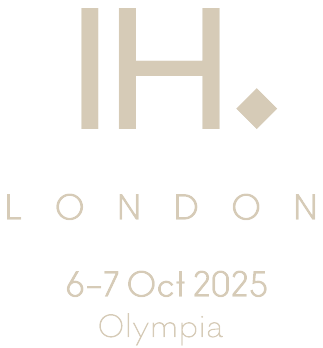Accreditation schemes: The key to success?
)

At the Independent Hotel Show 2024 in partnership with James Hallam Insurance Brokers, which took place on 15-16 October at Olympia Events, a panel of leading industry experts came together to discuss the evolving role of accreditation schemes in hospitality, particularly how they support business growth, enhance guest trust, and foster inclusivity.
Moderated by consultant Peter Hancock, the discussion included insights from Charlotte Evans of Condé Nast Johansens, Simon Numphud of AA Media, Laura Sharpe of Firmdale Hotels, and James O’Donnell of Matfen Hall.
One of the core themes that emerged during the discussion was the role of accreditation in building trust with guests. Numphud noted that accreditation schemes like AA Media and Visit England provide a reassuring seal of approval that helps consumers make informed choices.
This trust factor has become crucial in a landscape where guests increasingly value verified, quality experiences. Evans highlighted that consumer trust in accreditation goes beyond online reviews; guests often return to familiar ratings and awards as a trusted guide in their decision-making process, especially when it comes to high-end luxury hotels or corporate bookings.
The panel also explored the role of user review platforms like TripAdvisor, noting that while they offer valuable insights for guests, they often don’t hold the same weight as professionally vetted accreditations. Sharpe explained that guests generally rely on trusted accreditation schemes rather than user-driven sites. The rigorous standards upheld by accreditation bodies assure guests of a consistent quality level that user reviews alone may not provide.
A recent development discussed by the panel was Michelin’s introduction of a keys system for hotels. Building on its established restaurant star ratings, Michelin Keys now provide a similar quality indicator for hotel properties. While it’s too early to gauge the full impact of this new system, panellists noted that the added prestige has already generated industry buzz. However, O’Donnell cautioned against reshaping operations solely to meet award requirements, emphasising the importance of preserving each hotel’s unique character.
In addition, Numphud introduced AA Media’s new Visitor Ready badge, a digital-only, free compliance certification available across the industry. This badge provides a baseline assurance of safety and hygiene without the need for a traditional on-site inspection. It’s designed to give both guests and operators peace of mind, particularly for those looking for properties that adhere to essential safety standards.
The panel emphasised that accreditation shouldn’t require hotels to compromise their unique identity. Sharpe explained that, as a boutique hotel operator, maintaining authenticity is vital. Instead of tailoring their offerings solely to meet traditional five-star standards, Firmdale aim to preserve the individuality that sets them apart. Today’s updated accreditation schemes are evolving to embrace this flexibility, allowing boutique hotels to retain their character while meeting hospitality industry benchmarks.
Hancock also acknowledged the recent modernisation of the AA and Visit England ratings, eliminating one- and two-star designations, which aims to balance quality standards with hotel individuality.
Accreditation was seen as an asset in driving business, especially for properties looking to position themselves in higher price brackets. Evans pointed out that awards and accreditations like Condé Nast Johansens are highly valued by guests, serving as a trust point that can encourage repeat bookings. O’Donnell shared how moving Matfen Hall to a five-star status created a tipping point, allowing them to boost occupancy and adjust pricing based on the new positioning, but added that price is based on a number of factors and raising prices solely due to an award or accreditation could be shortsighted.
Sharpe added that, for her properties, location and competitor rates influence pricing more than accolades, while Numphud agreed that although a higher rating can place a hotel in a specific price bracket, the decision to raise prices should align with the market rather than simply displaying a new plaque on the wall.
In response to an audience question on accessibility, the panel addressed the growing importance of inclusivity in accreditation schemes. Evans emphasised the need for hotels to train staff on accessibility and inclusivity, recognising that disabilities can be both visible and invisible. Staff awareness and understanding is vital in creating an environment where all guests feel welcomed and catered to.
Numphud shared insights from Visit England’s recent research on accessibility, noting that many hospitality businesses are striving to enhance accessibility, yet the lack of a standardised approach can make it challenging for guests with disabilities to make informed choices. Moving forward, AA Media and Visit England plan to implement best practices that help hotels present consistent, detailed information on accessibility features, enabling guests to choose properties that meet their specific needs.
The panel concluded by reiterating that accreditation schemes remain a valuable tool for hotels, offering not only a mark of quality but also a means to elevate guest trust and ensure industry standards. In a rapidly changing market, successful accreditation schemes are those that evolve to support a wide variety of hospitality experiences while respecting each hotel’s individuality.
Whether through Michelin’s new Keys, the Visitor Ready badge, or well-established awards like AA and Condé Nast Johansens, accreditation can provide a powerful blend of recognition, reassurance, and opportunity for hotels looking to stand out in a competitive industry.
The Independent Hotel Show 2025 takes place on 6-7 October at Olympia Events. Find out more at independenthotelshow.co.uk.


